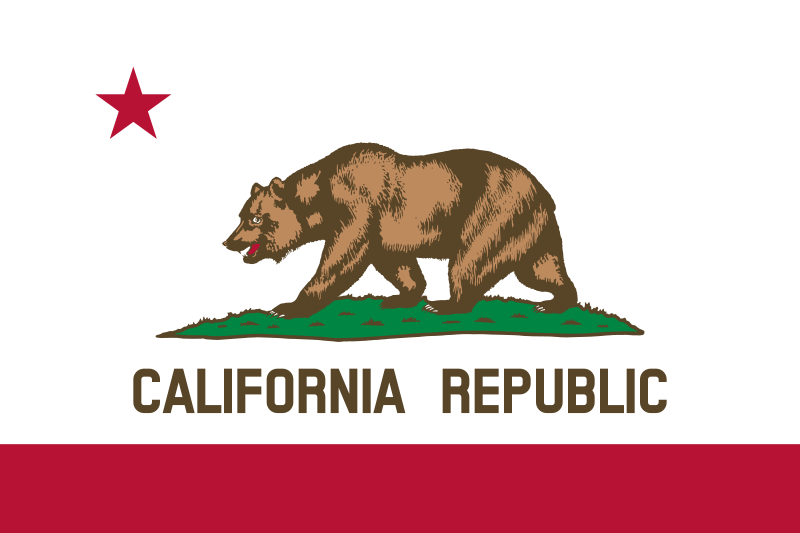California voters will decide in 2026 whether to allow state and local governments to create public financing programs for election campaigns under Senate Bill 42 (SB 42), which Gov. Gavin Newsom (D) signed on Oct. 2. The measure would repeal a prohibition, enacted through Proposition 73 in 1988, on public officers and candidates using or receiving public funds for campaign purposes. In California, the Legislature may only amend or repeal a voter-approved initiative if the initiative itself permits such changes; otherwise, any changes must be approved by voters.
By repealing the Proposition 73 ban on public funding, SB 42 would allow the state or local jurisdictions to establish programs for public funding of campaigns. SB 42 would require the state and local governments to develop expenditure limits and criteria for candidates to qualify for public funds for election campaigns. It would prohibit the public funds from being used for legal defense fees, fines, or to repay a personal loan to their campaign. The measure would authorize the state legislature to amend the provisions of the law related to the public funding of campaigns without voter approval, but require voter approval on all other provisions of the law.
Currently, 15 states and Washington, D.C., provide for some method of public campaign financing for state offices. There are three common models of public financing: 1) matching funds, where the government matches certain small-dollar donations earned by a candidate with public funds at a set rate; 2) vouchers, eligible residents receive vouchers representing a small amount of public funds to donate to a participating candidate of their choice; and 3) grants, where participating candidates receive grants of public funds.
SB 42 also included provisions related to the state’s ban on foreign entities making campaign contributions, but the provisions would have only been operable through SB 42 if Assembly Bill 953 did not pass the legislature. If AB 953 did not pass, SB 42 would have submitted the changes to the ban, which included adding foreign national, defined as "a person who is not a citizen of the United States and who is not a lawfully admitted permanent resident" to the list of banned entities, to voters as part of the 2026 ballot proposition. Gov. Newsom signed AB 953 on Oct. 1.
SB 42 was passed in the state legislature along party lines with unanimous Democratic approval and unanimous Republican opposition.
California Democratic Party, California Working Families Party, the ACLU of California, California Common Cause, Consumer Watchdog, End Citizens United, and Represent.Us were among the organizations that endorsed the measure during the legislative process. Sen. Ben Allen (D-24), one of the authors of SB 42, said, "The California Fair Elections Act is all about trying to improve our Democracy and elections. Public financing programs serve as a tool to lessen the power of big money, expand opportunities for more people to run for office, and allow candidates to focus more on voter appeal instead of donor appeal."
The California Taxpayers Association opposes the measure. David Kline, vice president of communications and research for California Taxpayers Association said, "People when they pay taxes want to pay for schools, fire departments, libraries, roads, that sort of thing. The last thing they want to pay for is a negative political ad that is going to hit them on the radio or T.V. during election season.”
The ban enacted by Proposition 73 was approved by a margin of 58% to 42%.
In 2016, the state legislature attempted to authorize public funding of elections with the passage of Senate Bill 1107, which allowed state or local governments to create dedicated funds that public officers or candidates could use for campaigning. SB 1107 was overturned, and the court ruled that voters would need to approve such changes to the law via ballot measure.
Since 2010, the California State Legislature has amended two initiated state statutes—Proposition 35 and Proposition 64. Proposition 35 increased the maximum sentence for human trafficking and was approved in 2012. It was amended by the state legislature in 2016. Proposition 64 legalized marijuana in 2016 and was amended in 2017. Both alterations were passed as measures to further the purpose of the initiatives and were, therefore, not referred to the voters.
California voters will be deciding on two other legislative referrals in November 2026. The first amendment would require initiatives proposing supermajority requirements to pass by the same threshold that they propose. It was originally placed on the 2024 ballot but was moved to the 2026 ballot. The second amendment would eliminate the successor election when a state officer is recalled, thereby leaving the office vacant until it is filled according to state law.
Additional reading:



